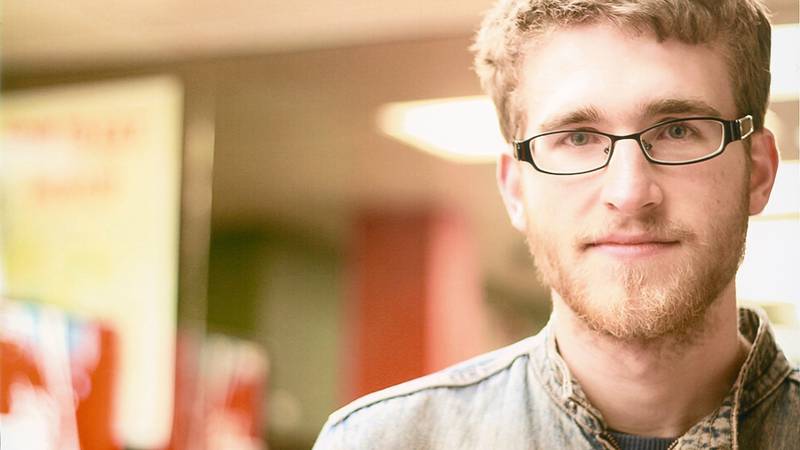Fred Fountain knows that whatever he does, he can never bring his son, Alex, back. But knowing that his generous donation to the Stay Connected Mental Health Project has improved mental health services for young adults, continues to help other families and kept his son’s legacy alive, gives him some consolation.
“There are a lot of supports that are around today that weren’t here nine years ago,” says Fred. “Today, there would have been more resources to support Alex and potentially could have saved him.”
A sensitive young man, musician and exceptional student, Alex took his own life in August 2009 just before he was to begin his fourth year at the University of King’s College. He was 20 years old and had received professional help for his depression.
After his passing, his parents, Fred and Elizabeth, wanted to honour Alex’s memory by contributing in a positive way to other young people experiencing mental health problems. In 2013, the Stay Connected Mental Health Project was launched following the Fountains’ generous $1,050,000 gift to the QEII Foundation. As the project nears its five-year anniversary, the Fountains renewed their commitment with a recent gift of $150,000 in recognition of Canada 150.
“We have been very pleased with success of the program,” says Fred.
The project started as a five-year innovative initiative to change the way young adults transition from youth to adult-based mental health and addictions services. At 19, people receiving ongoing treatment must switch from youth services at the IWK to adult services at the QEII Health Sciences Centre and other sites within the Mental Health and Addictions Program.
“The Stay Connected project has connected these services. We can reach out much more easily and collaboratively,” says Dr. David Pilon, a psychologist and program leader within the Mental Health and Addictions Program.
Connecting services and increasing support is critical because the transition of care comes at a time when people are most likely to face mental health problems. Seventy-five per cent of mental health disorders start before age 25, says Dr. Pilon.
“The project has been a success because it has changed how we support young people and their families at this transitional age,” he adds.
With the Fountains’ additional gift, Debbie Phillips, the project’s coordinator, can continue the transformative work she has been doing for another year. Since the project started, she has trained staff, developed new guidelines on how healthcare centres treat emerging adults, and worked closely with the health services teams at Halifax’s universities so students now have better access to the mental health care they need, says Dr. Pilon.
The Fountains' recent gift will continue to support 10 student peer-support positions at five local universities. Engaging the universities in collaborative mental health care coordination is a key component of the Stay Connected Mental Health Project, says Fred. And something he strongly supports. Stay Connected sponsors trained student peer-support positions at Dalhousie University, University of King’s College, Mount Saint Vincent University, Saint Mary’s University and NSCAD.
“They play a pivotal role in encouraging students to utilize formal services,” says Dr. Pilon.
“Young people can derive a lot of support, information and reassurance from other young people. There is something powerful about peer-to-peer connection.”
Nearly nine years after losing his son, Fred is optimistic the positive changes he has seen in how young adults receive care will continue, and that more bright, talented people like Alex can be helped.
“We have seen a lot more attention going to and improving various mental health services, particularly for young people,” says Fred.
“I think Alex would have recognized there was more support out there.”








